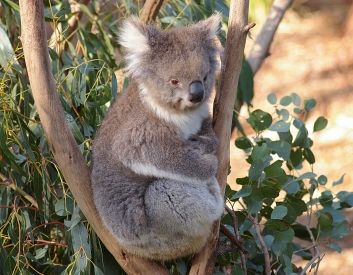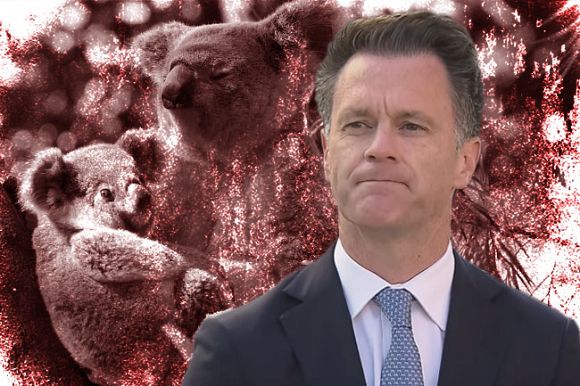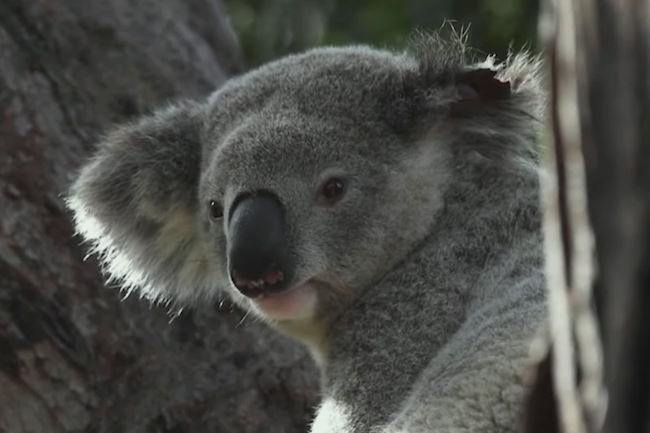“We all think koalas are cuddly. And we all want to save them. But guess what, you need to take action on climate change if you’re going to save koalas.”
~ Anthony Albanese, then-Opposition Leader, January 2022
IN 2022, then-Opposition Leader Albanese criticised the Morrison Government’s environmental funding investment of $50 million for the protection and recovery of koalas as failing to urgently address climate change, accusing the Government of being "all announcement, no delivery".
Mr Albanese went on to say:
"They haven't even delivered on the previous commitments they've made with regard to the Great Barrier Reef. And we see it again today with koalas."
Is the Prime Minister taking a leaf out of Donald Trump’s playbook? The former President provides irrefutable evidence of what happens when politicians lie, deceive and misinform the public.
Look no further than the U.S. to see the damage political lies are doing to democracy. The public needs to have some degree of trust in government if democracy is to work.
That means ethics. Are there any governmental or political ethics?
What should be done about lies and false promises? Should there be a penalty?
Albanese’s statement as Opposition Leader clearly indicates he has some knowledge of threats facing koalas as a result of climate change. Historically, there’s a mountain of evidence.
In May 2008, the Australian Academy of Science published a paper titled, ‘Koalas under threat from climate change'.
This paper demonstrated that increased temperature and carbon dioxide levels are a threat to the koala:
'Higher temperatures could also affect eucalypt species. Some are so sensitive to temperature that even one degree shift in mean annual temperature will affect them.’
In 2009, the world’s leading conservation organisation, the International Union for the Conservation of Nature (IUCN) – on whom the Federal Government relies for many of its threatened and endangered species listings – warned that the koala was one of ten species ‘destined to be hardest hit by climate change’.
Professor William Foley also stressed the importance of recognising koala vulnerability to climate change:
‘Australia’s iconic koala faces malnutrition and ultimate starvation as the nutritional quality of eucalyptus leaves declines as CO2 levels increase... This eucalyptus marsupial system is one of the very few examples in which the direct effects of CO2 can be linked to populations of wild animals.’
In 2016, a detailed ecological model study by the University of Melbourne found that:
‘...a changing climate means that by 2070 koalas may no longer call large parts of inland Australian home.’
But Albanese’s concern for koalas and the impacts of climate change on the species has been long forgotten.
Were his previous comments and criticism of the Morrison Government just an election ploy, cashing in on the public’s significant and growing concern over the koala? Global concern was also focused on koalas, particularly after a catastrophic loss of the species incinerated in the 2019-2020 bushfires.
Instead, his Government has delayed promised new environmental legislation to replace the outdated Environment Protection and Biodiversity Conservation Act 1999 (EPBC Act).
According to the Australia Institute, there are 116 new fossil fuel projects on the Federal Government’s annual resource and energy major project list.
By September 2023, Albanese’s Government had approved or extended eight fossil fuel projects since coming into office in May.
A Senate Committee rejected a Greens bill to insert a climate trigger into environmental laws. The Guardian reports that Environment Minister Tanya Plibersek 'said the Government had already made changes to strengthen Australia’s climate laws.’
Plibersek has stated:
“What we’re not going to do is have a safeguard mechanism on the one hand and a separate set of environmental laws covering the same material on the other hand.”
A landmark case by the Environmental Council of Central Queensland challenged the Federal Government over emissions from two coal mine extensions in New South Wales.
Known as the "Living Wonders" case, the challenge focused on the environment minister’s power in considering emissions in the approval process. The Federal Court ruling, establishing a precedent, found the Federal Government can ignore the risks fossil fuel projects pose to protected flora and fauna species, and places when considering approval.
The judges said the case highlighted the "ill-suitedness" of the current environmental laws in relation to assessing the threat of climate change on the environment.
In NSW, the Biodiversity Conservation Act 2016 puts anthropogenic climate change high up on the key threatening processes list. However, there are no provisions in the legislation to address the impacts.
The Environment Protection & Biodiversity Conservation Act 2012 also includes as a key threatening process 'loss of climatic habitat caused by anthropogenic emissions of greenhouse gases’ way down on an extensive list with no specific provisions to address the issues.
The National Recovery Plan for the koala makes abundantly clear the threats climate change poses to the species:
‘The listed koala is at most risk from climate change due to a shrinking climate envelope, along with wide-scale climate change effects that increase the frequency and intensity of drought and heatwaves. By 2030, more than 20% of listed koala habitat is likely to be seriously impacted by climate change under high global emissions scenarios.’
The plan has major recommendations to address climate change impacts, including to:
‘...Prioritise populations at greater risk from climate change.
...prioritise regions of greatest risk including areas of inland and northern Queensland and inland New South Wales.
...identify climate and fire refugia.'
According to the plan, other processes inter-acting with climate change affecting the koala include reduced reproduction brought about by stress, increased disease rates and changes in the distribution and availability of their preferred tree species.
One of the most important actions recommended is to incorporate the impacts of projected climate change such as drought, heatwave and fire into all strategic koala planning and actions, including forestry practices.
The Federal Court judgement on the Living Wonders case ensures that major fossil fuel projects can get a free pass with no consideration of emissions required by the minister for environment in granting approval.
In NSW, the Coastal Integrated Forestry Operations Approval (CIFOA) process contains no climate change trigger, nor does the approval recognise the impacts of drought or fire.
Both the minister for environment and the minister for agriculture are required to make changes to the approval. In spite of many requests, the ministers have failed to address – much less consider – these critical issues.
A group of scientists in Zurich have mapped biodiversity changes in the world’s forests. Their latest survey suggests that around 31 per cent of tree species are threatened with extinction.
IUCN research has revealed 25 per cent of Australia’s eucalypt species are threatened with extinction.
Koalas are the only living representative of a family known from the fossil record of the last 25 million years.
Ensuring koala survival is a moral, scientific and political imperative.
But what government is listening?
Sue Arnold is an IA columnist and freelance investigative journalist. You can follow Sue on Twitter @koalacrisis.
Related Articles
- Government 'secrecy' imperiling future of koalas
- NSW Government clueless about koala protection
- NSW court judgement greenlights demise of wildlife
- Minns Government sells out Great Koala National Park
- NSW Labor continues Coalition's contempt of koala conservation
 This work is licensed under a Creative Commons Attribution-NonCommercial-NoDerivs 3.0 Australia License
This work is licensed under a Creative Commons Attribution-NonCommercial-NoDerivs 3.0 Australia License
Support independent journalism Subscribe to IA.















